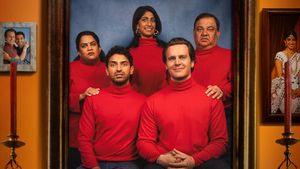In 2020, I was given a reprieve from being perceived by others. I thought it was impossible to start my transition due to my leadership position in the Army Reserve, my job at a private Christian university, and my complicated relationship with masculinity.
Growing up, I thrived in positions where I got to be "the first girl" to do any number of things, performing equally - if not better than - the boys in my hometown.
The isolation of the pandemic had me searching for soft comforts amidst global uncertainty. I rediscovered my love for the High School Musical trilogy. The song "Bet On It" in the second film reflected my sense of confusion about how to proceed in the world. However, I was terrified that transitioning in appearance and name would diminish my ability to retain certain aspects of myself.
My crisis led me to artists like Nickelback and Daughtry. I needed music to keep me going during long workdays stuck at the computer. Their hits had been on my iPod as a child, and they found their way into my headphones when I needed them most. Nickelback sang about a willingness to cut his hair and change his name to be a rockstar. Daughtry insisted on "going to a place where love and feeling good don’t ever cost a thing." These rock stars had me crying into a cup of coffee before a 9:00 am Zoom meeting. I started watching their music videos, hoping not to be disappointed by these possible role models if the outcome centered on the all-too-common exploitation of women.
Instead, I found a series of stories, some as silly as Saturday morning cartoons and others as earnest as found family.
I eventually discovered Daughtry’s “As You Are,” where the lead singer lovingly embraces his family with interspersed clips of various relationships. This song was my salve and shelter from all the complicated emotions I experienced leading into the process of transitioning. It still has the power to make me weep happily.
While waiting for testosterone to lower my voice, I would queue up my favorite songs from these artists and go for a drive. Belting out the words to “Photograph” or “Waiting for Superman” made me feel at home in my body. My stereo was where questions about this new identity converged with soft singers who answered through songs of heartbreak, regret, loss, loving, learning, and reconciliation.
These albums were my steadfast friends as I adjusted to living as my new self openly. The lullabies of these singers helped me endure and feel less alone. Their music would continue to play regularly on driving playlists, and I would learn how laughable many found my “dad rock” to be. I was unaware of the meme-ification surrounding these men. People would beg me to change the songs, some unable to listen without eye rolls.
It was a crisis of faith in some senses, facing a community that loved to make irony out of my idols.
At first, I thought it might be time to retire my love or go “back in the closet” concerning this passion. Naturally, “As You Are” found its way into my car during another one of these moments where I felt alone with these questions, and I laughed through my tears.
Early in my transition, many people wanted to offer their insights into how men operate or how I could “successfully pass.” It wasn’t long ago that I had individuals emphasizing the reality that men don’t cry. What they meant to say, perhaps, is that people will always make fun of the ones who do.
These artists taught me how beautiful it is to rock and roll with all the sentimentality that hope requires of us.
I have tried time and time again to articulate how wonderful the emotional spectrum of this music is, especially when someone mistakes stoicism for masculinity’s virtue. I love laughing at Chad Kroeger’s desire to eat quesadillas, and if Daughtry is Christian rock, this witchy boy loves how spirituality works its way into the band’s lyrics.
More than anything, I am grateful for how their music supports my continual creation of an identity that sustains nuance and feelings without compromise.
Micah Rensunberg is a writer whose work explores the necessity of tender compassion and the wisdom of youth. He is a transmasc student at Harvard Divinity School. Micah has worn many hats from a military career to children’s chaplaincy, spending time these days learning to slow down. Originally from San Diego, he has come to love winters and watching falling leaves in Boston with his spouse and their teddy bear kids.
Voices is dedicated to featuring a wide range of inspiring personal stories and impactful opinions from the LGBTQ+ community and its allies. Visit Advocate.com/submit to learn more about submission guidelines and email us at voices@equalpride.com. Views expressed in Voices stories are those of the guest writers, columnists, and editors, and do not necessarily represent the views of The Advocate or our parent company, equalpride.


















































































